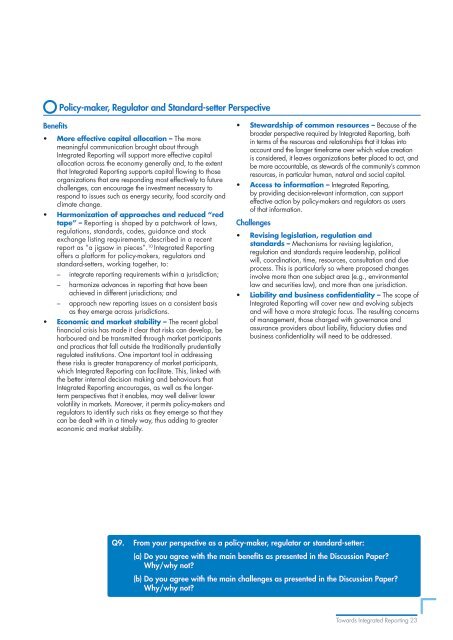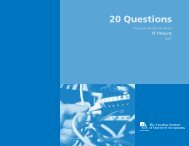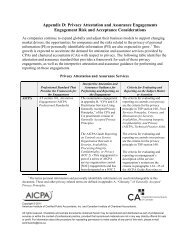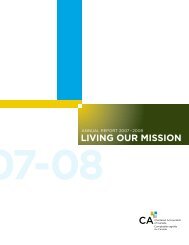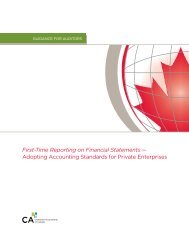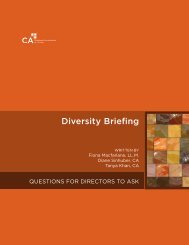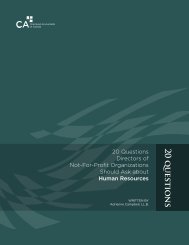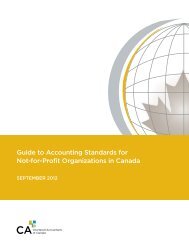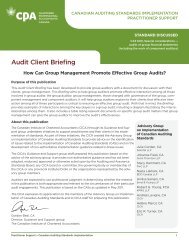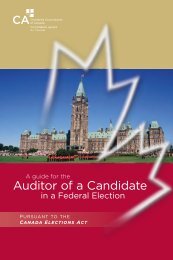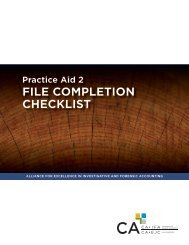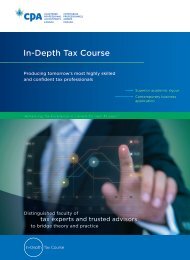TOWARDS INTEGRATED REPORTING Communicating ... - The IIRC
TOWARDS INTEGRATED REPORTING Communicating ... - The IIRC
TOWARDS INTEGRATED REPORTING Communicating ... - The IIRC
Create successful ePaper yourself
Turn your PDF publications into a flip-book with our unique Google optimized e-Paper software.
Policy-maker, Regulator and Standard-setter PerspectiveBenefits• More effective capital allocation – <strong>The</strong> moremeaningful communication brought about throughIntegrated Reporting will support more effective capitalallocation across the economy generally and, to the extentthat Integrated Reporting supports capital flowing to thoseorganizations that are responding most effectively to futurechallenges, can encourage the investment necessary torespond to issues such as energy security, food scarcity andclimate change.• Harmonization of approaches and reduced “redtape” – Reporting is shaped by a patchwork of laws,regulations, standards, codes, guidance and stockexchange listing requirements, described in a recentreport as “a jigsaw in pieces”. 10 Integrated Reportingoffers a platform for policy-makers, regulators andstandard-setters, working together, to:––integrate reporting requirements within a jurisdiction;––harmonize advances in reporting that have beenachieved in different jurisdictions; and––approach new reporting issues on a consistent basisas they emerge across jurisdictions.• Economic and market stability – <strong>The</strong> recent globalfinancial crisis has made it clear that risks can develop, beharboured and be transmitted through market participantsand practices that fall outside the traditionally prudentiallyregulated institutions. One important tool in addressingthese risks is greater transparency of market participants,which Integrated Reporting can facilitate. This, linked withthe better internal decision making and behaviours thatIntegrated Reporting encourages, as well as the longertermperspectives that it enables, may well deliver lowervolatility in markets. Moreover, it permits policy-makers andregulators to identify such risks as they emerge so that theycan be dealt with in a timely way, thus adding to greatereconomic and market stability.• Stewardship of common resources – Because of thebroader perspective required by Integrated Reporting, bothin terms of the resources and relationships that it takes intoaccount and the longer timeframe over which value creationis considered, it leaves organizations better placed to act, andbe more accountable, as stewards of the community’s commonresources, in particular human, natural and social capital.• Access to information – Integrated Reporting,by providing decision-relevant information, can supporteffective action by policy-makers and regulators as usersof that information.Challenges• Revising legislation, regulation andstandards – Mechanisms for revising legislation,regulation and standards require leadership, politicalwill, coordination, time, resources, consultation and dueprocess. This is particularly so where proposed changesinvolve more than one subject area (e.g., environmentallaw and securities law), and more than one jurisdiction.• Liability and business confidentiality – <strong>The</strong> scope ofIntegrated Reporting will cover new and evolving subjectsand will have a more strategic focus. <strong>The</strong> resulting concernsof management, those charged with governance andassurance providers about liability, fiduciary duties andbusiness confidentiality will need to be addressed.Q9. From your perspective as a policy-maker, regulator or standard-setter:(a) Do you agree with the main benefits as presented in the Discussion Paper?Why/why not?(b) Do you agree with the main challenges as presented in the Discussion Paper?Why/why not?Towards Integrated Reporting 23


